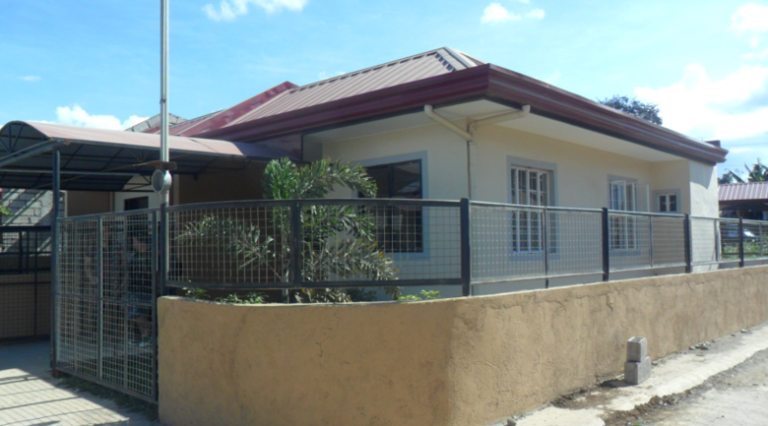Extending the Lifespan of Your Home Water System: A Comprehensive Overview
Maintaining Water Quality and Pressure
A well-maintained home water system is essential for ensuring the system’s longevity and the inhabitants’ health and comfort. Regular maintenance checks can identify and rectify minor issues before they escalate, as well as aspects of home care that are often underestimated. Adding water softeners and specialized filters can help reduce mineral buildup, which, left unchecked, can lead to inefficiencies and potential breakdowns within the system. Moreover, identifying the need for timely well pump replacement Tampa FL, can make all the difference in maintaining optimal water quality and pressure. Consistency in water pressure is not just a matter of preference; it is vital for preventing pipe damage and leakage. Sudden drops and spikes in pressure can put undue strain on the water system. A professionally installed pressure regulator can help manage these fluctuations, maintaining a steady flow and reducing the risk of damage caused by pressure extremes. Residents noticing irregular water pressure should consider consulting with a professional who can offer specific insights for their localized concerns.
Common Issues and Troubleshooting Tips
Familiarity with your water system’s normal operations is critical, as it will allow you to notice when something isn’t quite right. Unusual noises, inconsistent water temperature, and low water pressure are common indicators that your water system may fail. Recognizing these signs paves the way for early interventions and potentially averts severe damage. Many water system issues can be resolved with simple, do-it-yourself fixes. For instance, regular filter cleaning or replacement is easy and can prevent more significant issues. However, some anomalies, such as persistent noises from the pump or erratic cycling, may signal that it’s time to call in a professional. When it comes to deep-rooted problems, an expert opinion can save you money and extend the life of your system in the long run.
Technological Advancements in Water Systems
In the current era, we’re witnessing significant advancements in water system technology that promise to increase the efficiency and longevity of these vital components. Smart technology has been a significant game-changer, with systems savvy enough to regulate themselves according to usage patterns and even predict maintenance requirements. These intelligent systems can mitigate costly damages by alerting potential issues before they become significant problems.
Knowledge and adoption of modern technologies are essential to conserving our water resources. Innovations such as greywater recycling systems and rainwater harvesting technologies underline an ever-growing focus on sustainability and efficiency within water system management.
Environmental Impact and Sustainability
As we become more aware of our environmental footprint, the sustainability of our home water systems has become a topic of critical importance. Adopting water-saving techniques conserves precious resources and extends the life of your water system by reducing wear from overuse. Simple measures such as fixing leaky taps, installing aerators, and using drought-resistant landscaping can significantly reduce water wastage. Embracing sustainable solutions benefits homeowners through utility savings and positively affects the broader ecological systems. By ensuring that our water systems run efficiently and without unnecessary waste, we contribute to conserving this essential resource for our communities and future generations.
Cost-Benefit Analysis of Upkeep vs. Replacement
Deciding between ongoing maintenance and complete system replacement is a question of balancing short-term costs with long-term benefits. Regular upkeep typically lowers overall costs and can maintain system efficiency, but there comes a time when the cost of cumulative repairs can outweigh the price of a new system. Investing in a newer, more efficient system may be more economical when facing frequent malfunctions or dealing with outdated equipment. Upgrading your home water system should always involve an analysis of long-term savings, potential increases in property value, and improved reliability.
Preparing for Emergencies: Backup Systems and Solutions
Many take reliable access to clean water for granted until faced with an emergency. A significant challenge arises when the water supply is cut off, whether it is due to a natural disaster or a power outage. A well-thought-out backup plan, such as a gravity-fed system or an additional water storage tank, can be indispensable in times of need. Having a secondary water source and ensuring its proper maintenance can provide peace of mind and security. It’s essential to regularly check these systems to ensure they are functional if needed. Ignorance of backup preparedness is a risk that homeowners need help to afford.
Average Lifespans of Water Pumps and Wells
The average lifespan of various water system components can vary considerably based on usage, quality, and environmental factors. A typical submersible well pump may last 10 to 15 years, while the well itself, if constructed appropriately, can last much longer, even several decades. Homeowners must understand these timelines to anticipate possible replacements and budget accordingly. The longest possible life for these parts largely depends on preventative maintenance, such as yearly testing and inspections. By taking proactive steps, homeowners can often extend the functionality of their water systems well beyond the average expectancy.
Quality Considerations for Longevity
Quality should never be compromised when it comes to the components of your water system. High-quality pumps, tanks, and pipes resist corrosion and wear far better than their cheaper counterparts. These higher-end materials may come with a steeper upfront cost but typically offer greater longevity and less frequent need for repairs. Recognizing quality certifications and adhering to industry standards when selecting materials and contractors will ensure that installations are performed correctly and that components meet the necessary criteria for durability and performance.
Government Regulations and Compliance
Government regulations safeguard public health and environmental integrity. Any homeowner with a water system must stay informed about water-related legislation and compliance requirements. They must also adhere to regular testing for contaminants, be aware of water rights and usage limitations, and comply with local building codes. Compliance protects the environment and public health, but it’s also crucial for properly functioning your water system. Fulfilling these regulations can even improve the overall value of your property, making compliance a win-win for homeowners and communities alike.
Conclusion: Maximizing Your Water System’s Lifespan
Water is a fundamental need, and ensuring that your home’s water system operates smoothly and efficiently is a top priority for any conscientious homeowner. By incorporating regular maintenance, staying abreast of technological advancements, practicing environmental sustainability, and preparing for emergencies, you can significantly extend the life of your home water system. Remember, a proactive approach secures your water needs and contributes to a sustainable global future. By carefully looking after our water systems, we’re maintaining our homes and stewarding the water resources we depend on.






